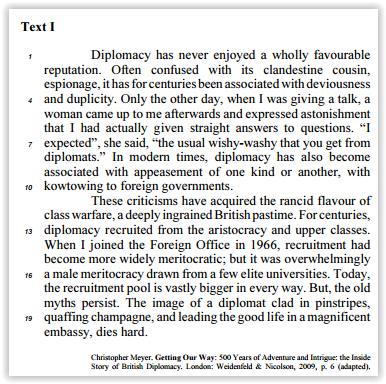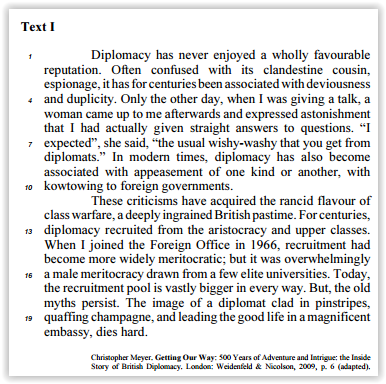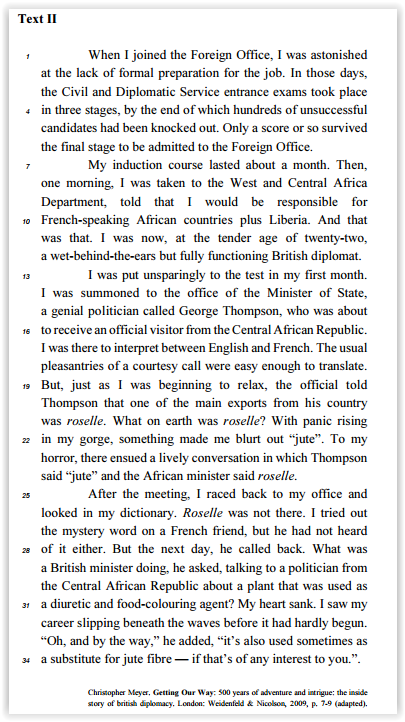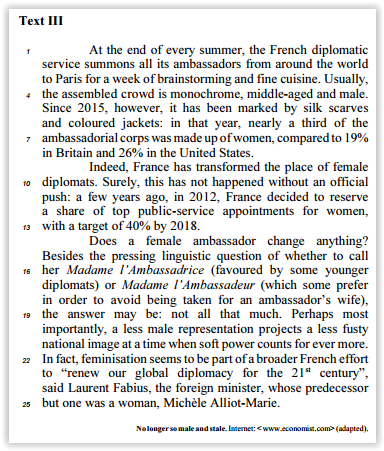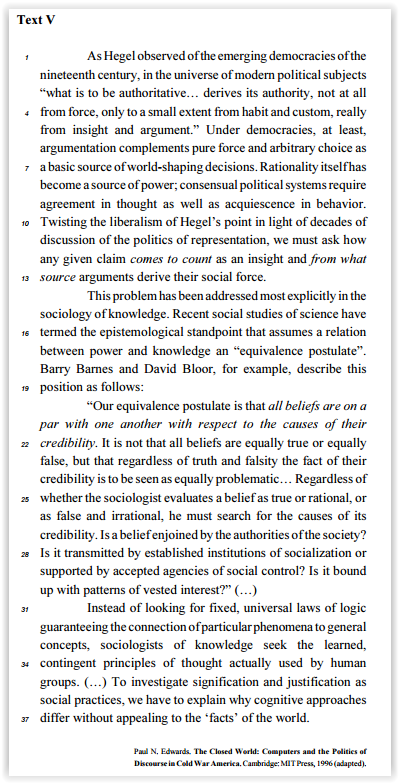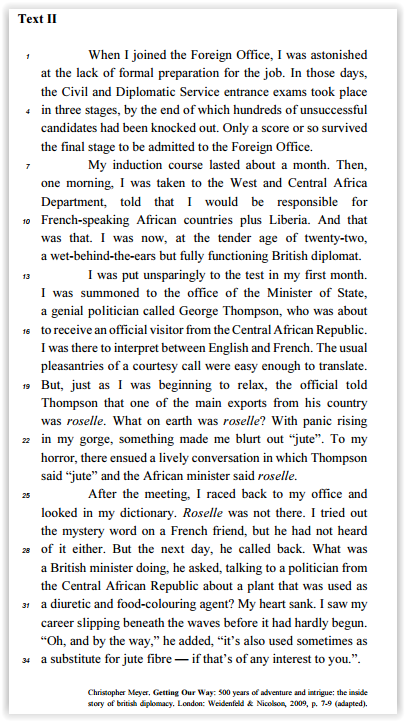Decide whether the following statements are right (C) or wrong (E) according to text I.
For the author, the bad reputation diplomacy holds has to do with the frequent international negotiations in which diplomats deal with foreign officials.
Considering the grammatical and semantic aspects of text I, decide whether the following items are right (C) or wrong (E).
There would be no change in the meaning of the passage from “Often" (l. 2) to “duplicity" (l.4) if it were replaced by Even though it is often confused with espionage, which is its illegitimate cousin, diplomacy has been linked with misbehaviour and duplicity for centuries.
Considering the ideas and the vocabulary of text II, decide whether the statements below are right (C) or wrong (E).
The word “genial" (l.15) means unusually intelligent.
Decide whether the statements below, concerning the ideas and the vocabulary of text III, are right (C) or wrong (E).
According to the text, the foreign minister Laurent Fabius was appointed immediately after Mrs. Alliot-Marie's term.
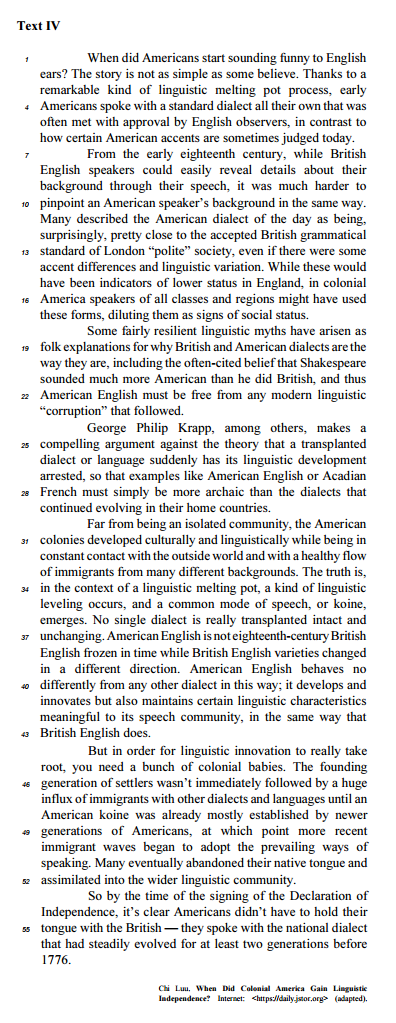
Decide whether the following statements are right (C) or wrong (E) according to text IV.
The author criticizes Krapp's argument that exemplars of transplanted languages or dialects such as Acadian French are more archaic than the original ones, which continued evolving in their home countries.
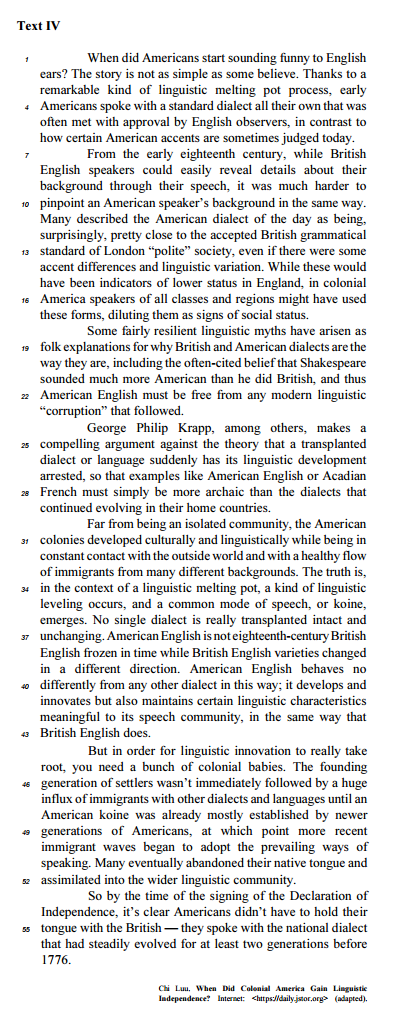
Considering the grammatical and semantic aspects of text IV, decide whether the following items are right (C) or wrong (E).
The adjective “compelling" (l.25) could be replaced by thorough in this particular context.
Considering the grammatical and semantic aspects of text V, decide whether the following items are right (C) or wrong (E).
The word “contingent" (l.34) is synonymous with necessary.
Decide whether the following statements are right (C) or wrong (E) according to text I.
It can be correctly concluded from the text that the recruitment methods adopted in the past have fuelled suspicion against diplomats and created a fallacious idea about their work.
Considering the ideas and the vocabulary of text II, decide whether the statements below are right (C) or wrong (E).
With the expression “And that was that" (l. 10 and 11), the author reinforces the idea indicated by “the lack of formal preparation for the job" (l.2).
Decide whether the statements below, which concern the ideas of text II and the vocabulary used in it, are right (C) or wrong (E).
From the author's account, it can be correctly inferred that he was expected to be able to translate from French to English and vice versa, as part of his job as a diplomat.
Decide whether the statements below, concerning the ideas and the vocabulary of text III, are right (C) or wrong (E).
In spite of some passages which might be taken as ironic, it is correct to conclude that the text considers the changes in French diplomacy to be positive.

Decide whether the following statements are right (C) or wrong (E) according to text IV.
It can be said from the text that to British ears, contemporary American accents belie declining grammar standards in America as compared to Colonial times.

Considering the grammatical and semantic aspects of text IV, decide whether the following items are right (C) or wrong (E).
The word “assimilated" (l.52) could be correctly replaced by blended, without altering the meaning of the passage.
Considering the grammatical and semantic aspects of text V, decide whether the following items are right (C) or wrong (E).
The text asserts that facts should be judged to be the sole standard against which to define beliefs.
Considering the grammatical and semantic aspects of text V, decide whether the following items are right (C) or wrong (E).
The word “enjoined" (l.27) cannot be replaced by endorsed in this particular context.

